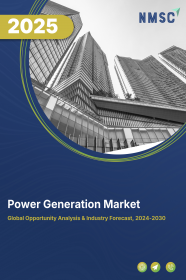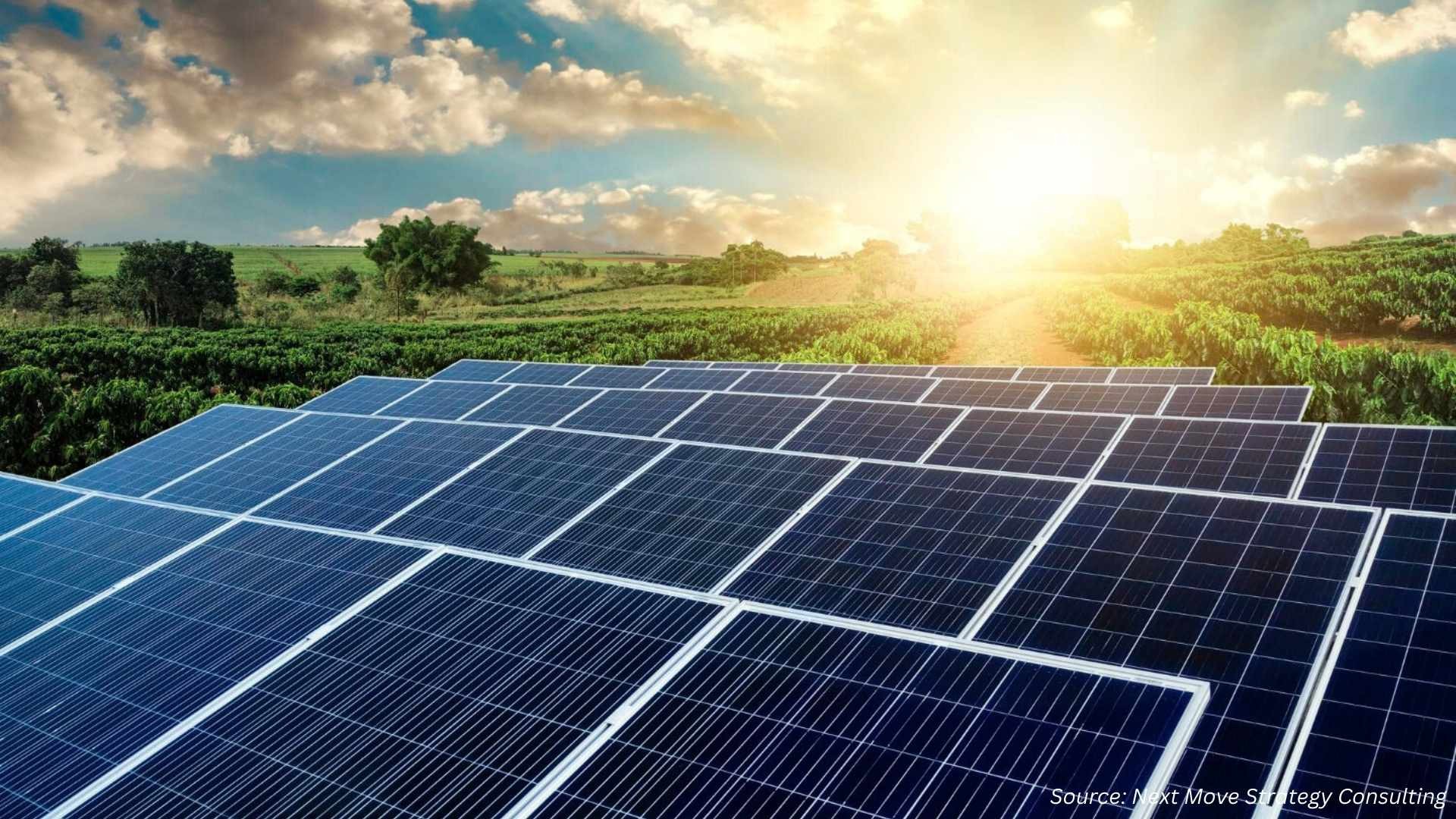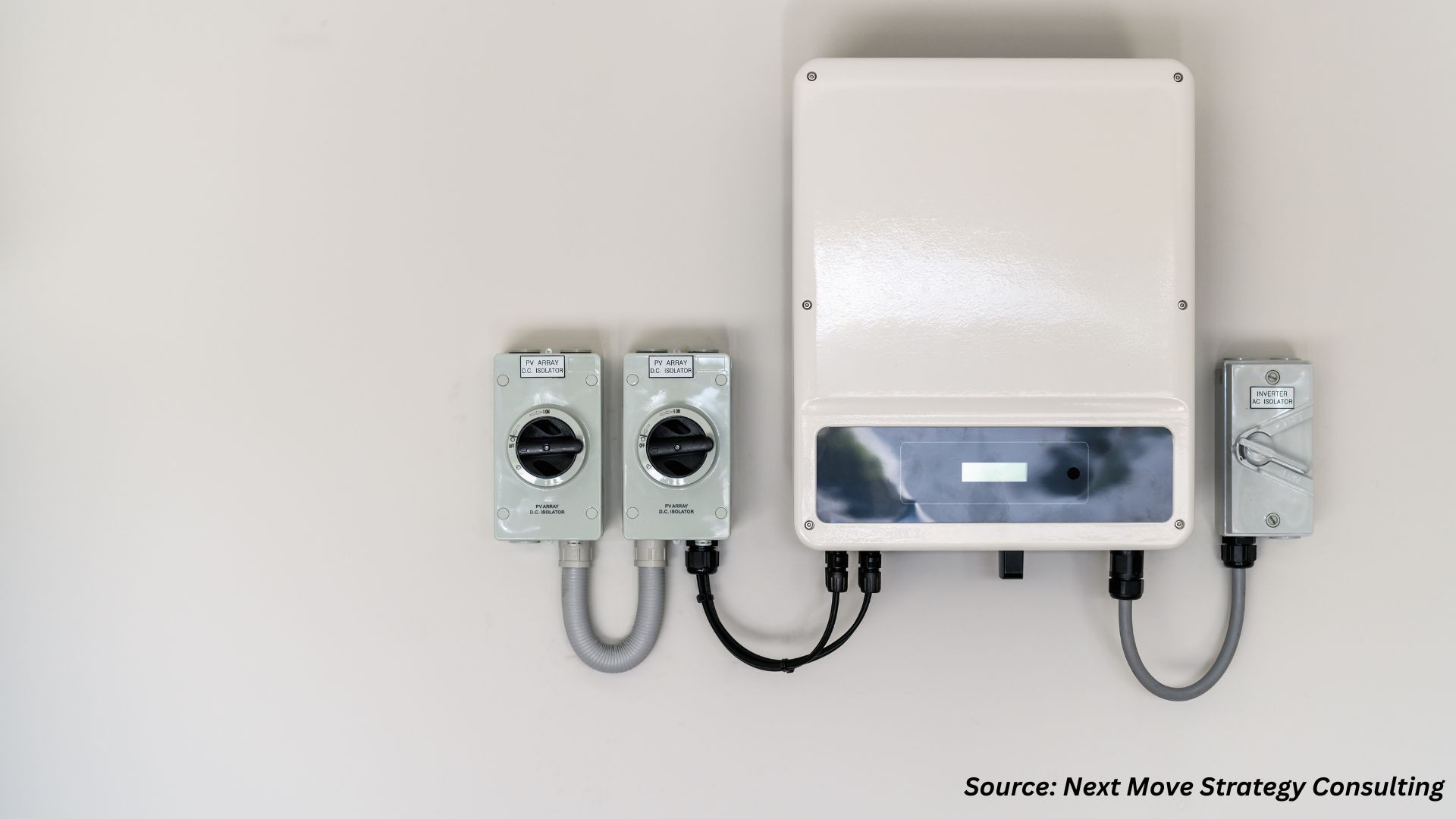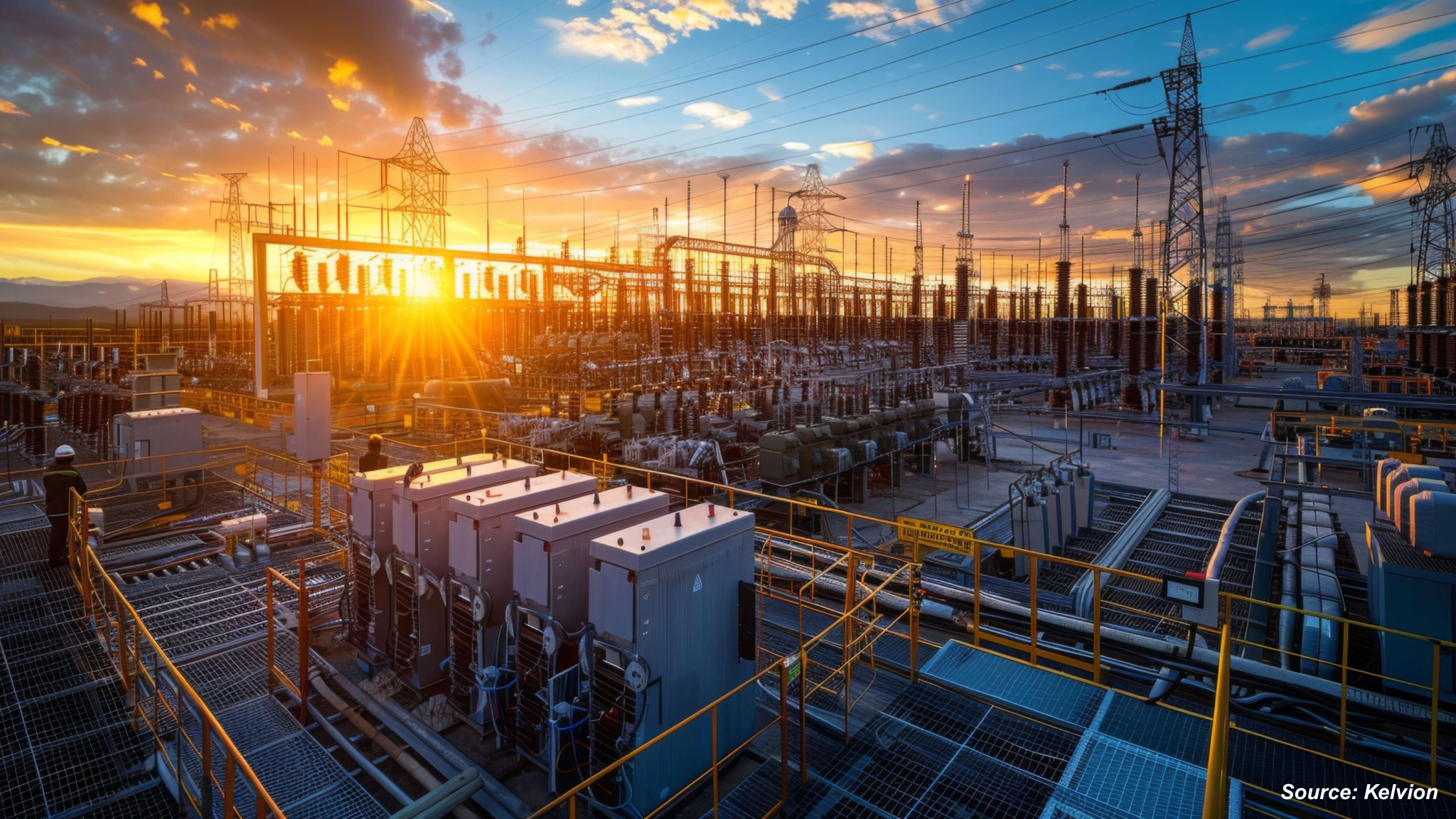
Power Generation Market Information by Type (Hydroelectricity, Fossil Fuel Electricity, Nuclear Electricity, Solar Electricity, Wind Electricity, Geothermal Electricity, Biomass Electricity, and Other Electricity), by Grid Type (Off Grid and On Grid), by Source of Energy (Conventional/Non-Renewable Source and Renewable Source), and by End User (Industrial, Commercial, Residential, Transportation, and Others) - Global Opportunity Analysis and Industry Forecast, 2024–2030
Market Definition:
The Global Power Generation Market size was valued at USD 1667.57 billion in 2023, and is predicted to reach USD 2895.19 billion by 2030, with a CAGR of 8.2% from 2024 to 2030. The power generation market refers to the industry segment involved in the generation, production, and distribution of electrical energy. It encompasses a wide range of technologies and methods for generating electricity, such as fossil fuels, nuclear energy, renewable sources like wind and solar, and other emerging technologies.
This crucial sector involves the conversion of primary energy into electricity, which can then be distributed to meet the needs of residential, commercial, and industrial consumers. It offers a diverse range of energy sources, allowing for flexibility and adaptability to changing energy needs and environmental considerations. Power generation plays a fundamental role in providing the electricity necessary for modern societies and is a cornerstone of infrastructure for economic development and daily life.
Market Dynamics and Trends
The exponential rise in the global population coupled with the increasing dependency on electrical devices are key factors leading to the constant demand for electrical power. This factor, in turn, drives the growth of the power generation market. According to the International Energy Agency (IEA), the global electricity demand is increasing rapidly by 2.1% per year till 2040, which is twice the rate of primary energy demand.
Also, government initiatives and policies are encouraging the use of renewable energy sources for power generation to avail their efficiency and reliability. This factor further boosts the growth of the market. For instance, in August 2022, the Government of India officially announced that the country aims to reach net-zero emissions by 2070, with the goal of fulfilling half of its electricity needs through renewable energy sources by 2030.
However, the power generation market growth is hindered by factors such as outdated electricity generation infrastructure in developing nations and the air pollution resulting from carbon dioxide emissions due to the burning of fossil fuels for power production. On the other hand, the growing popularity of the smart grid technologies for their high reliability and features such as advanced monitoring and control systems are expected to create ample opportunities for the market in the coming years.
Market Segmentations and Scope of the Study
The power generation market is segmented on the basis of type, source of energy, grid type, end user, and geography. On the basis of type, the market is segmented into hydroelectricity, fossil fuel electricity, nuclear electricity, solar electricity, wind electricity, geothermal electricity, biomass electricity, and other electricity. Based on source of energy, the market is divided into conventional/non-renewable source and renewable source. On the basis of grid type, the market is characterized into off grid and on grid. Based on end user, the market is categorized into industrial, commercial, residential, and transportation. The geographic breakdown and analysis of each of the aforementioned segments includes regions, such as North America, Europe, Asia-Pacific, and the rest of the world (RoW).
Geographical Analysis
Asia-Pacific holds the dominant share of the power generation market, and is expected to continue its dominance during the forecast period. This is attributed to factors such as the high use of thermal power, including fossil fuels, coal, and natural gas, as viable options to generate energy in countries such as China and India. For instance, in 2021, according to the Center for Research on Energy and Clean Air (CREA), China started building 33 gigawatts of coal-based power generation plants nationwide. Also, the increase in the adoption of solar photovoltaic systems (solar PVs) for their low cost in the region is further fueling the growth of the power generation market. For instance, in January 2022, the Government of China announced that the country aims to install 108 GW of PV by the end of 2022.
On the other hand, North America is expected to show a steady rise in the power generation market, due to the increasing growth of renewable energy sources in the region. According to the U.S. Energy Information Administration (EIA), in 2020, renewable energy sources accounted for 20.4% of total electricity generation, which is an increase from 17.5% in 2019. The increasing costs of government incentives for renewables propel this growth. For instance, in 2021, the Solar Energy Industries Association (SEIA) reported that the U.S. solar industry saw a 43% increase in installed capacity in 2020, reaching 19.2 GW.
Also, several initiatives taken by the government in this region further increase the adoption of hydropower and biomass, boosting the market growth in the region. For instance, in August 2022, The U.S. Department of Energy (DOE) launched a program to support research and deployment of hydropower with an investment of USD 28 million.
Competitive Landscape
Various market players operating in the power generation market include Enel SpA, GE Renewable, Electricite de France, Engie, E.ON SE, Iberdrola S.A, Excelon Corp, AGL Energy, Southern Company, Reliance Industries, Korea Electric Power Corporation (KEPCO), China National Nuclear Corporation (CNNC), NextEra Energy Inc, Canadian Solar Inc. and Constellation Energy Corporation. These market players continue to adopt various market development strategies including acquisitions and partnerships across various regions to maintain their dominance in the power generation market.
For instance, in September 2022, Enel SpA and Algerian state-owned oil company Sonatrach signed agreements to increase volumes and adjust natural gas supply contracts. These agreements encompass the provision of extra volumes for 2022, and the potential for further volume increases in the years ahead. This partnership is expected to strengthen trade relations in the field of natural gas, thus ensuring stable and reliable gas supplies and helping increase energy security for customers.
Furthermore, in September 2022, Reliance Industries Ltd. acquired a majority stake of 79.4% in a California-based solar energy software developer SenseHawk, Inc. for USD 32 million. The acquisition aims to develop tools for the solar industry, which will help Reliance Industries expand its presence in the renewable energy sector globally. SenseHawk develops software for the solar energy industry, including tools for designing, constructing, and operating solar power plants.
Furthermore, in August 2020, GE Renewable Energy and Walcha Energy signed an agreement to accelerate the development of the 500MW Dungowan pumped hydro storage project in Australia. Under this collaboration, GE will provide technical and commercial support for the project.
Key Benefits
-
The report provides quantitative analysis and estimations of the power generation market from 2024 to 2030, which assists in identifying the prevailing market opportunities.
-
The study comprises a deep dive analysis of the power generation market, including the current and future trends to depict prevalent investment pockets in the market.
-
Information related to key drivers, restraints, and opportunities and their impact on the power generation market is provided in the report.
-
Competitive analysis of the players, along with their market share is provided in the report.
-
SWOT analysis and Porters Five Forces model is elaborated in the study.
-
Value chain analysis in the market study provides a clear picture of roles of stakeholders.
Key Market Segments
By Type
-
Hydroelectricity
-
Fossil Fuel Electricity
-
Nuclear Electricity
-
Solar Electricity
-
Wind Electricity
-
Geothermal Electricity
-
Biomass Electricity
-
Other
By Source of Energy
-
Conventional/Non-renewable
-
Renewable Source
-
Others
By Grid Type
-
Off-grid
-
On-grid
By End User
-
Industrial
-
Commercial
-
Residential
-
Transportation
-
Others
By Region
-
North America
-
U.S
-
Canada
-
Mexico
-
-
Europe
-
UK
-
Germany
-
France
-
Italy
-
Spain
-
Denmark
-
Netherlands
-
Finland
-
Sweden
-
Norway
-
Russia
-
Rest of Europe
-
-
Asia-Pacific
-
China
-
Japan
-
India
-
South Korea
-
Australia
-
Indonesia
-
Singapore
-
Taiwan
-
Thailand
-
Rest of Asia-Pacific
-
-
RoW
-
Latin America
-
Middle East
-
Africa
-
Key Players
-
Enel SpA
-
GE Renewable
-
Electricite de France
-
Engie
-
E.ON SE
-
Iberdrola S.A
-
Excelon Corp
-
AGL Energy
-
Southern Company
-
Reliance Industries
-
Korea Electric Power Corporation (KEPCO)
-
China National Nuclear Corporation (CNNC)
-
NextEra Energy Inc
-
Canadian Solar Inc.
-
Constellation Energy Corporation
REPORT SCOPE AND SEGMENTATION:
|
Parameters |
Details |
|
Market Size in 2023 |
USD 1667.57 Billion |
|
Revenue Forecast in 2030 |
USD 2895.19 Billion |
|
Growth Rate |
CAGR of 8.2% from 2024 to 2030 |
|
Analysis Period |
2023–2030 |
|
Base Year Considered |
2023 |
|
Forecast Period |
2024–2030 |
|
Market Size Estimation |
Billion (USD) |
|
Growth Factors |
The exponential rise in the global population, coupled with the increasing dependency on electrical devices. Growing government initiatives towards the use of renewable energy |
|
Countries Covered |
28 |
|
Companies Profiled |
15 |
|
Market Share |
Available for 10 companies |
|
Customization Scope |
Free customization (equivalent up to 80 working hours of analysts) after purchase. Addition or alteration to country, regional, and segment scope. |
|
Pricing and Purchase Options |
Avail customized purchase options to meet your exact research needs. |




















 Speak to Our Analyst
Speak to Our Analyst

























